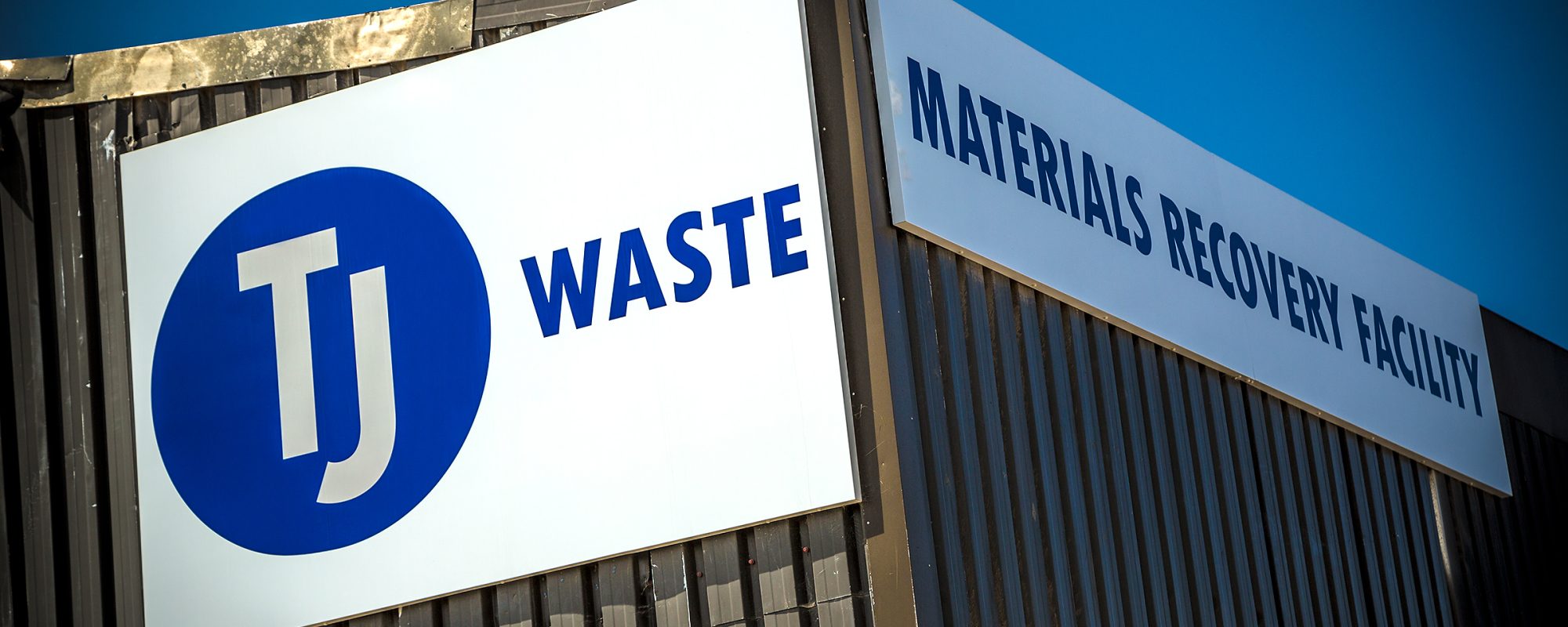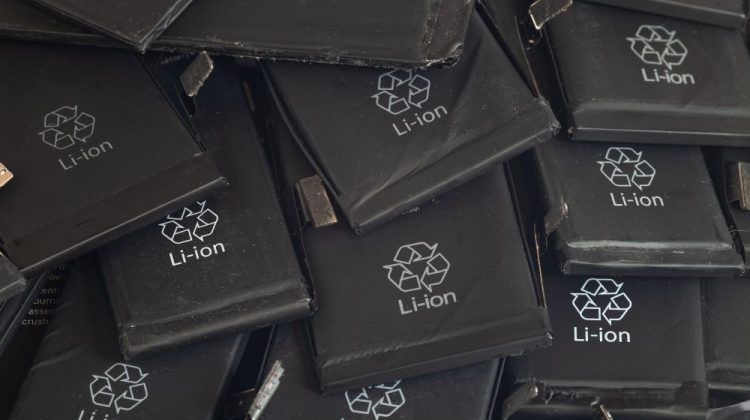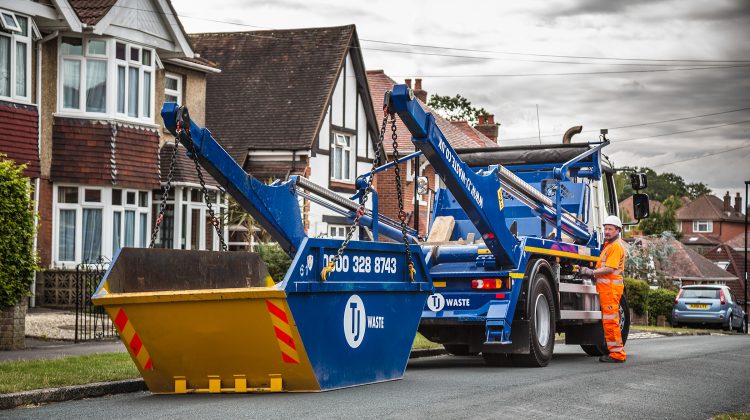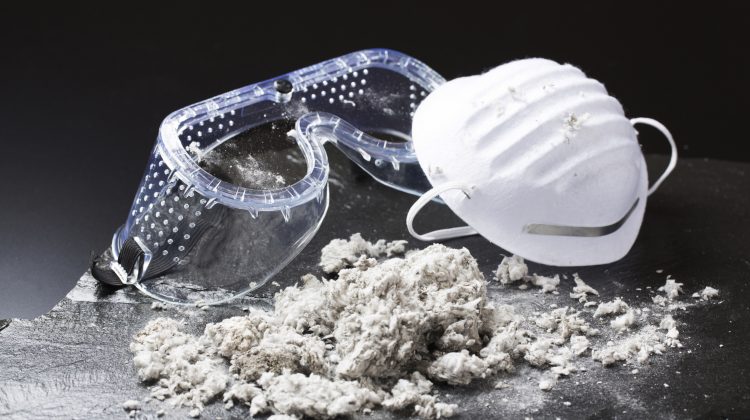Incorrect disposal of lithium-ion batteries can be catastrophic, as the recent fire at our Tipner facility demonstrated. Discover how to safely dispose of these batteries…

In a world where we are becoming increasingly aware of the environmental impact of sending waste to landfill, recycling practices have never been more important.
We must all be sure to recycle all of our household items in our dedicated recycling bins and we must also do this in our workplaces too. Paper, card, plastic bottles, metal drinking cans, metal food tins and aerosols are all widely recycled. We must also recycle our glass jars and bottles and old clothing at bring banks, which are dotted around our communities for ease.
So that’s the widely recycled items covered, but what about those that you may not realise can even be recycled? Read on to discover 7 surprising items that can be recycled…
Most carpets can be reused or recycled in some way. You (or your friends or family) could make use of your unwanted carpet for use as rugs in areas like conservatories, to line your car boot, as dog bedding, to lay down in your boarded loft space or to cover your veg plot during the winter to discourage weed growth. Some carpet retailers offer a return scheme so you can return your carpet after you’ve finished with it and it will be directed to a place where it will be broken down and the different elements can be repurposed.
Although not all batteries can be recycled, many can. They are not permitted to go into household recycling bins, but many larger companies will collect them in the workplace for collective recycling and some supermarkets also offer battery recycling points, so keep a look-out and remember to take yours with you on your next trip to the shops!
Unwanted or broken electrical items are often referred to as WEEE – Waste Electrical and Electronic Waste. You can usually take larger items to your local Household Waste Recycling Centre (HWRC), but do check that your HWRC are accepting WEEE during the coronavirus pandemic. You can put small electrical items in a carrier bag on top of your recycling bin for your fortnightly collections. This is only for small items such as hairdryers, straighteners and hand mixers etc.
TJ offers WEEE collections for companies as part of their commercial waste management service – get in touch for more information. Items such as fridges are not able to be disposed of in the same way as other WEEE items and have to be handled in a specialist capacity, due to gases inside the fridge and other potentially hazardous components. TJ already provides a fridge removal service for a local council, so do get in touch if you are part of an organisation requiring this type of service.
Did you know that both used engine oil and used cooking oil can be disposed of at your local HWRC? There is a maximum limit of 5 litres of cooking oil per household per month and 10 litres of engine oil per person per six months.
Crayola alone produces millions of crayons per year. The National Crayon Recycling Program has diverted more than 105,000 pounds of unwanted crayons from going to landfill with the help from schools, educators and children across the country. It takes your unwanted, rejected, broken crayons to a better place, where they will be recycled into new crayons!
Many companies offer bike recycling schemes – Halfords periodically offer money off new cycling items in exchange for unwanted bikes (or helmets), which they repurpose and pass on to schools in disadvantaged areas of the country. Contact your local council or check out the recyclenow website to find out how you can recycle your unwanted bicycle. If your bike is really past repair, the metal parts can be reused and recycled separately so it’s well worth doing either way.
Tree recycling is becoming more common, with most councils offering a kerbside collection service in early January. The trees can be shredded into chippings which are then used locally in parks or woodland areas.
TJ recycles up to 100% of the waste that comes through their doors, demonstrating their commitment to diverting waste from landfill. TJ’s extensive knowledge of a range of recycling centres in and outside of Hampshire helps make all this recycling possible.
TJ has Materials Recovery Facilities dotted along the south coast in Southampton, Portsmouth and Yapton, plus facilities in the Avonmouth area of Bristol. All of the waste that comes into the facilities is sorted into categories to ensure that as much as possible is recycled or reused.
TJ are keen to promote the practice of recycling and are regularly forming partnerships with like-minded companies that are looking to improve their recycling rates or who have means of providing innovative new ways to recycle. TJ’s recycling efforts have led to an excess of 250,000 tonnes of waste diverted from landfill through recycling routes.
TJ’s commercial waste management service can offer your company a full range of waste removal services including recycling, general, confidential and hazardous waste collections.
TJ are strong supporters of diverting waste from landfill, opting for other options wherever possible. Energy can be recovered from waste, mainly through incineration of refuse derived fuel (RDF) and this is something that TJ is involved in. The use of energy recovery from RDF increased by 375% between 2014 and 2016 in the UK, making it an ideal alternative to landfill.
It supports the government’s 2025 Revised Waste Framework Directive, which effectively bans recyclable material from going to landfill, whilst also supporting the growing awareness amongst our customers to improve sustainability and become more socially responsible.
TJ is working in partnership with two local companies to help direct plastic ice cream tubs into the recycling process. TJ established a new recycling process for certain types of plastics and quickly realised that unwanted plastic ice cream tubs and offcuts would be ideal for it. The tubs are made into a new product – pellets – which are then able to be moulded into new plastic products.
TJ produces two of their own recycled aggregates: Type 1 crushed concrete and Type 1 reclamix. The crushed concrete product is screened from 6F5 Crushed Concrete to produce a graded, cost-effective sub base for construction projects of all sizes. The Reclamix is a blend of primary Type 1 Limestone or similar and recycled Type 4 aggregate and is mostly used as a sub base for small to medium construction projects. Check out the full range of aggregates that TJ offers…
TJ can take care of your company’s recycling needs as part of their commercial waste management service and can also offer a tipping service for recyclable materials at their Materials Recovery Facilities. Follow the links for more information or give us a call on 08000 463 964 to discuss further.

Incorrect disposal of lithium-ion batteries can be catastrophic, as the recent fire at our Tipner facility demonstrated. Discover how to safely dispose of these batteries…

Skip and grab hire are both great options for your domestic or commercial projects. There are advantages to both depending on your project, so read on to discover which option would be best suited to your requirements.

Asbestos is a highly toxic and hazardous waste material that must be removed and disposed of properly by professionally licensed companies. We’re licensed to carry hazardous materials such as asbestos and can provide you with the complete service…
Change your stored postcode to update prices for your location.